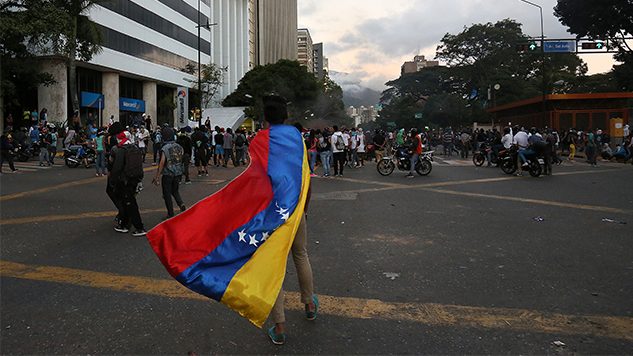What Is Happening in Venezuela? A Primer
Photo by Edilzon Gamez/Getty
If you’re wondering what exactly is going on in Venezuela and why the U.S. is getting involved, you’re not alone.
On Wednesday, Venezuelan opposition leader Juan Guaidó declared himself the country’s interim president, claiming that Nicolas Maduro (the former or current president, depending on who you’re talking to) had been deposed, CNN reports.
Not long after, President Donald Trump recognized Guaidó as Venezuela’s interim president, calling the former regime “illegitimate.” However, analysts are “not clear the former bodyguard’s [Maduro’s] fall is anywhere near imminent or that Trump’s power play will pay off,” as per CNN.
The citizens of Venezuela have suffered for too long at the hands of the illegitimate Maduro regime. Today, I have officially recognized the President of the Venezuelan National Assembly, Juan Guaido, as the Interim President of Venezuela. https://t.co/WItWPiG9jK
— Donald J. Trump (@realDonaldTrump) January 23, 2019
Maduro responded to Trump’s decision by declaring that American diplomats must leave the country within 72 hours. However, the U.S. personnel have remained as, in White House national security adviser John Bolton’s words, they were “invited to stay by the legitimate government and consistent with their safety that’s our intention.”
This precarious situation could lead to confrontation, as earlier today (Jan. 24), Venezuela’s Armed Forces swore their allegiance to Maduro. Trump also emphasized to reporters that “all options, always, all options are on the table,” as per CNN, when asked if he would deploy military force to ensure the outcome he wants in Venezuela.
-

-

-

-

-

-

-

-

-

-

-

-

-

-

-

-

-

-

-

-

-

-

-

-

-

-

-

-

-

-

-

-

-

-

-

-

-

-

-

-








































